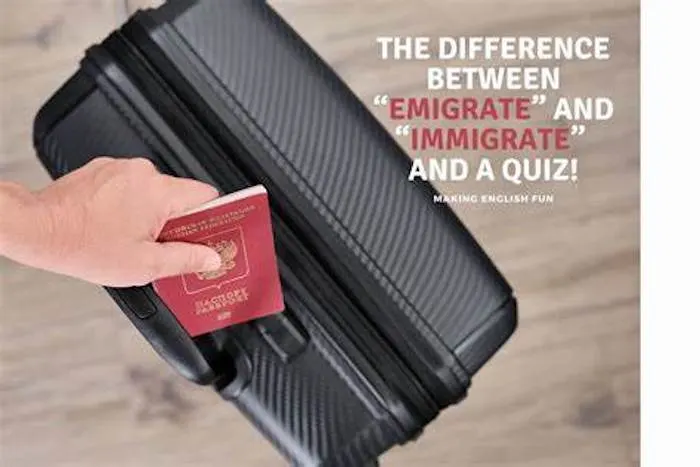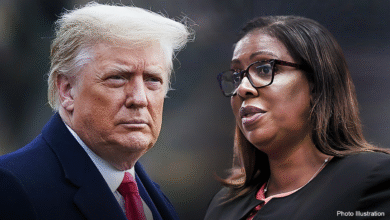Supreme Court Deportation Ruling Resumes Trump’s Policy

In a significant Supreme Court deportation ruling, the nation’s highest court has enabled the Trump administration to expedite the removal of certain immigrants to countries different from their own without prior notification. This controversial decision lifted an injunction issued by a federal District Court, allowing the administration to proceed with what critics label quick deportations. As the appeal unfolds, immigrant rights advocates express alarm over the potential violation of due process protections. The ruling has ignited a debate over the balance between national security and humane treatment of individuals facing removal. Meanwhile, dissenting justices, including Sonia Sotomayor, have raised serious concerns regarding the implications for those at risk of torture or harm, underscoring the emotional and legal ramifications of such policies.
The recent directive from the Supreme Court has reignited discussions surrounding immigration enforcement and the mechanisms of deportation in the United States. With the Trump administration’s strategy now back in play, the implications for individuals facing accelerated removals to potentially dangerous locations are profound. Legal experts and representatives from immigrant rights organizations warn of the erosion of fundamental due process rights, which many believe are vital for ensuring fair treatment under the law. Moreover, the decision continues to polarize opinions on how to best navigate the intersection of immigration policy and national security. This critical judicial intervention has set the stage for ongoing litigation that seeks to challenge the validity of these expedited deportations, highlighting the urgent need for a reevaluation of the government’s approach to immigration.
Supreme Court Deportation Ruling: Impacts on Immigrant Rights
The recent ruling by the Supreme Court allowing the Trump administration to resume quick deportations has significant implications for the rights of immigrants in the United States. This decision not only lifts previous restrictions imposed by lower courts but also raises critical questions surrounding due process protections for those facing deportation. Immigrant rights advocates have voiced concerns that this ruling violates core humanitarian principles, risking the safety of individuals who could be returned to countries where they face threats of torture or death, as highlighted in the dissenting opinion of Justice Sonia Sotomayor.
The Supreme Court’s decision represents a stark shift in immigration policy, echoing the aggressive deportation strategies of the Trump administration. By removing the requirement for advance warnings or opportunities for immigrants to contest their deportation, this ruling effectively accelerates the deportation process, which many argue could lead to devastating consequences for families and communities. Supporters of the ruling claim it enhances national security by allowing for swift removal of individuals deemed a threat, yet critics contend that this stance neglects essential due process protections vital for a fair judicial system.
Critique of the Quick Deportation Policy
The reinstatement of quick deportations under the Trump administration is being criticized heavily by legal experts and immigrant rights organizations. Many argue that this approach undermines the judicial checks that are designed to protect vulnerable populations. The swift deportation of individuals, particularly those with prior convictions, raises ethical concerns about human rights violations. Legal representatives of affected immigrants stress that the absence of advance notice or the opportunity to defend oneself can lead to irreversible repercussions—often resulting in separation from families and eventual harm in the host countries.
Critics have also pointed to the lack of a systematic review process that weighs the individual circumstances of each immigrant being deported. Many deportees could end up in situations where they are unsafe or subjected to violence. As noted by Trina Realmuto from the National Immigration Litigation Alliance, the urgency to expedite these cases disallows proper judicial oversight, which is crucial for determining whether an individual should remain in the U.S. or be sent back to places where they face genuine risk.
Implications of the Supreme Court’s Allowance for Rapid Deportations
The Supreme Court’s recent order allowing the resumption of rapid deportations presents complex implications for the legal landscape of immigration enforcement in the U.S. For one, it signals a shift towards a more aggressive approach to immigration under the Trump administration, where quick deportations are prioritized over comprehensive legal reviews. This methodology can impact thousands of immigrants currently living in the U.S. who might have valid claims for asylum or protection based on imminent risks they face if returned to their countries.
Additionally, the ruling raises serious concerns regarding the balance of power between the judiciary and the executive branch. As the Trump administration moves forward with its deportation agenda, the potential for abuse of power becomes apparent. The dissenting opinions, particularly those from Justice Sotomayor, underscore the need for the Court to exercise caution when dealing with issues of life and death, suggesting that hastily lifting protections could lead to severe consequences for individuals caught in this system.
Voices from Immigrant Rights Advocates
In response to the Supreme Court ruling, immigrant rights advocates have expressed a deep sense of urgency and alarm. Organizations such as the National Immigration Litigation Alliance warn that the reinstatement of quick deportations could devastate lives without due consideration of their personal circumstances. Advocates argue that the quick removal of individuals, particularly those fleeing violence or persecution, violates fundamental human rights and disregards the tenet of due process that Americans hold dear.
Furthermore, the statement from legal representatives involved in the litigation underscores a collective call to action, emphasizing the necessity to restore judicial protections that help prevent wrongful deportations. Their position highlights the fundamental right of immigrants to be heard, especially when faced with life-threatening conditions after deportation. Advocates are now mobilizing resources to contest the ruling and ensure that immigrant rights are defended throughout the ongoing appeal process.
The Role of the Biden Administration in Immigration Policy
With the Trump administration’s quick deportation policies now back in play, the Biden administration faces immense pressure to address the underlying issues that perpetuate the cycle of fear among immigrants. Critics argue that the prior administration’s approach to immigration was far too punitive, and they call on the current administration to reevaluate how deportations are carried out and ensure that vulnerable populations receive fair treatment and consideration. Biden’s plans for immigration reform need to reflect a commitment to due process and human rights.
The Biden administration’s response to the Supreme Court’s ruling will be crucial in shaping the future of immigration policy. As debates continue over border security and the treatment of immigrants, the administration has an opportunity to advocate for policies that not only enhance safety but also protect the dignity and rights of all individuals—especially those who seek refuge from violence and persecution by offering pathways to legal status.
Judicial Dissent on Immigration Enforcement Rulings
The dissent from Justices Sonia Sotomayor and her colleagues highlights the ongoing judicial concerns regarding the aggressive immigration enforcement by the Trump administration. Their opinions draw attention to the potential dangers posed by allowing rapid deportations without thorough judicial review and due process. The dissent underscores the importance of checks and balances in immigration law, insisting that courts must remain vigilant in protecting the rights of those threatened with removal.
Justice Sotomayor’s dissent emphasizes that decisions regarding deportation should not be made lightly. She articulates a vision where the judicial system plays a protective role in ensuring that no individual is returned to conditions where they may face severe harm. This judicial perspective is essential in the broader context of advocacy for immigrant rights and the critical evaluation of deportation practices that prioritize expediency over justice.
Impact on Families and Communities After Deportation Orders
The repercussions of the Supreme Court’s decision to permit quick deportations extend beyond the individuals directly affected. Families and communities face the trauma of separation when members are deported without notice. The psychological and emotional toll on children, spouses, and extended family can be profound, leading to long-term consequences that transcend immediate legal battles. The decision to expedite deportations without proper proceedings has the potential to destabilize communities that are already marginalized and reliant on family unit cohesiveness.
Additionally, communities may experience heightened fear and anxiety following the reinstatement of aggressive deportation tactics. People may live in constant fear of being torn apart from loved ones without due process to defend their rights. The implications of such policies can lead to decreased community resilience and a pervasive sense of vulnerability among immigrant populations. The demand for comprehensive immigration reform becomes more urgent as families grapple with the reality of sudden and potentially dangerous deportations.
Future of Deportation Policy in the U.S.
The legal battles surrounding deportation policies are far from over, with the Supreme Court decision marking a pivotal moment in the trajectory of U.S. immigration enforcement. As appeals unfold and public responses increase, there is potential for a reevaluation of judicial processes that oversee deportations. Ongoing discussions on immigrant rights, safety, and due process protections are likely to intensify, especially as advocates push for systemic reforms within the immigration system.
The future of deportation policy hinges not only on judicial rulings but also on the political landscape influenced by advocacy efforts and public opinion. Grassroots movements dedicated to preserving immigrant rights are vital to countering aggressive enforcement practices. As the nation continues to grapple with complex immigration issues, the need for equitable policies that prioritize human dignity and protection rights has never been clearer.
Frequently Asked Questions
What impact does the Supreme Court deportation ruling have on immigrant rights in the U.S.?
The Supreme Court deportation ruling allows the Trump administration to resume quick deportations, potentially undermining immigrant rights. Critics argue this decision strips away due process protections, leaving individuals vulnerable to being sent to countries where they may face serious harm.
How does the Supreme Court decision affect due process protections for immigrants?
The recent Supreme Court decision suspends the protections previously afforded to immigrants resisting deportation, particularly those at risk of torture or death upon return to their home countries. This ruling raises concerns over the lack of judicial oversight in deportation cases.
What are the implications of the Trump administration’s resume of quick deportations due to the Supreme Court ruling?
The implications of the Trump administration’s ability to resume quick deportations include significant changes to enforcement practices. The Supreme Court ruling enables the expedited removal of certain immigrants, often without adequate legal recourse, which has sparked fear among immigrant communities.
What did Justice Sonia Sotomayor say about the Supreme Court deportation ruling?
Justice Sonia Sotomayor strongly dissented against the Supreme Court deportation ruling, criticizing it as a gross abuse of discretion. She emphasized the need for caution in life-and-death matters, expressing concern over the wrongful deportation of individuals to unsafe countries.
How did the Supreme Court ruling relate to previous injunctions against Trump administration deportations?
The Supreme Court ruling lifted a federal District Court’s injunction that had prevented the Trump administration from conducting certain deportations. This allowed for the immediate resumption of quick deportations, raising concerns over compliance with court directives regarding due process.
What concerns do legal advocates have regarding the Supreme Court’s ruling on deportations?
Legal advocates express grave concerns about the Supreme Court’s ruling, suggesting that it severely impacts due process protections for immigrants. They foresee horrifying ramifications, including the potential for individuals to be deported to dangerous situations without an opportunity to argue their cases.
What is the current status of appeals related to the Supreme Court deportation ruling?
The current status of appeals related to the Supreme Court deportation ruling indicates that the order will remain in effect while the Trump administration’s appeal is processed. This ongoing litigation could further influence the future of deportation practices.
Why did the court’s three liberal justices dissent from the Supreme Court deportation ruling?
The three liberal justices dissented from the Supreme Court deportation ruling due to concerns over its implications for justice and human rights. They felt the ruling undermined essential protections for individuals facing deportation to countries where they could face severe harm.
| Key Point | Details |
|---|---|
| Supreme Court Ruling | Allowed resumption of quick deportations without warning. |
| Legal Context | Lifted injunction from a federal court that blocked the deportation practice. |
| Dissenting Opinion | Supreme Court’s liberal justices dissented, emphasizing potential human rights violations. |
| Safety and Security Claims | Trump administration claims the ruling is a victory for American safety. |
| Legal Concerns | Admissions of potential torture or death for deported individuals raised by advocates. |
Summary
The Supreme Court deportation ruling has significant implications for immigration policy and human rights. By allowing the Trump administration to proceed with quick deportations to third countries without prior notice or the opportunity for individuals to contest their deportation, the Supreme Court has faced criticism for disregarding due process protections. The dissenting justices highlighted serious concerns regarding the potential consequences, including exposure to torture or death for those deported. As the case continues to unfold, its impact on vulnerable immigrant communities and the broader legal landscape remains to be seen.




